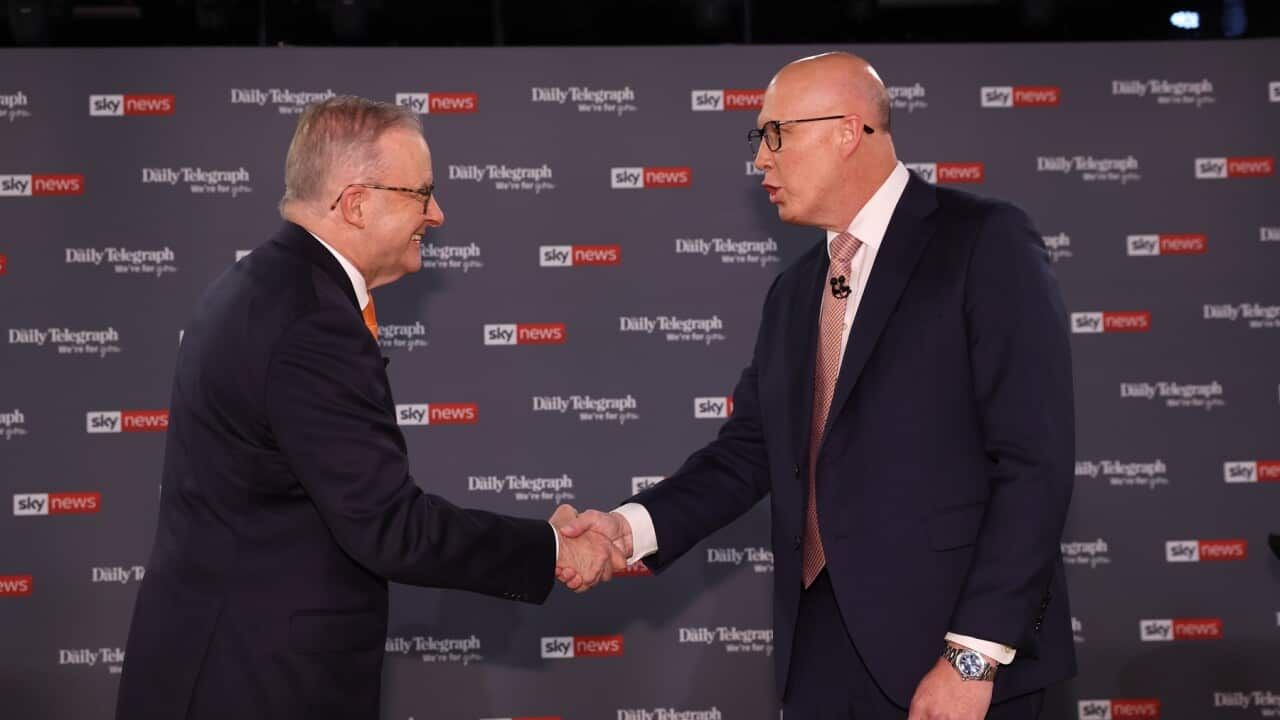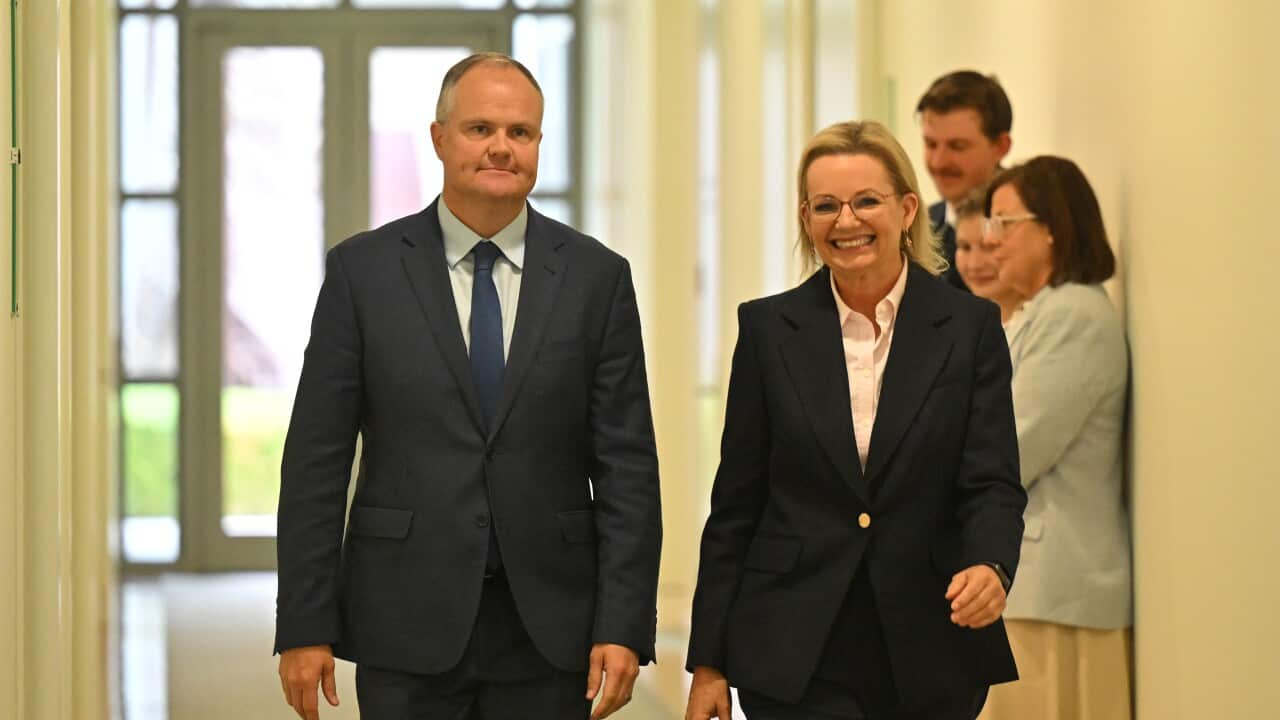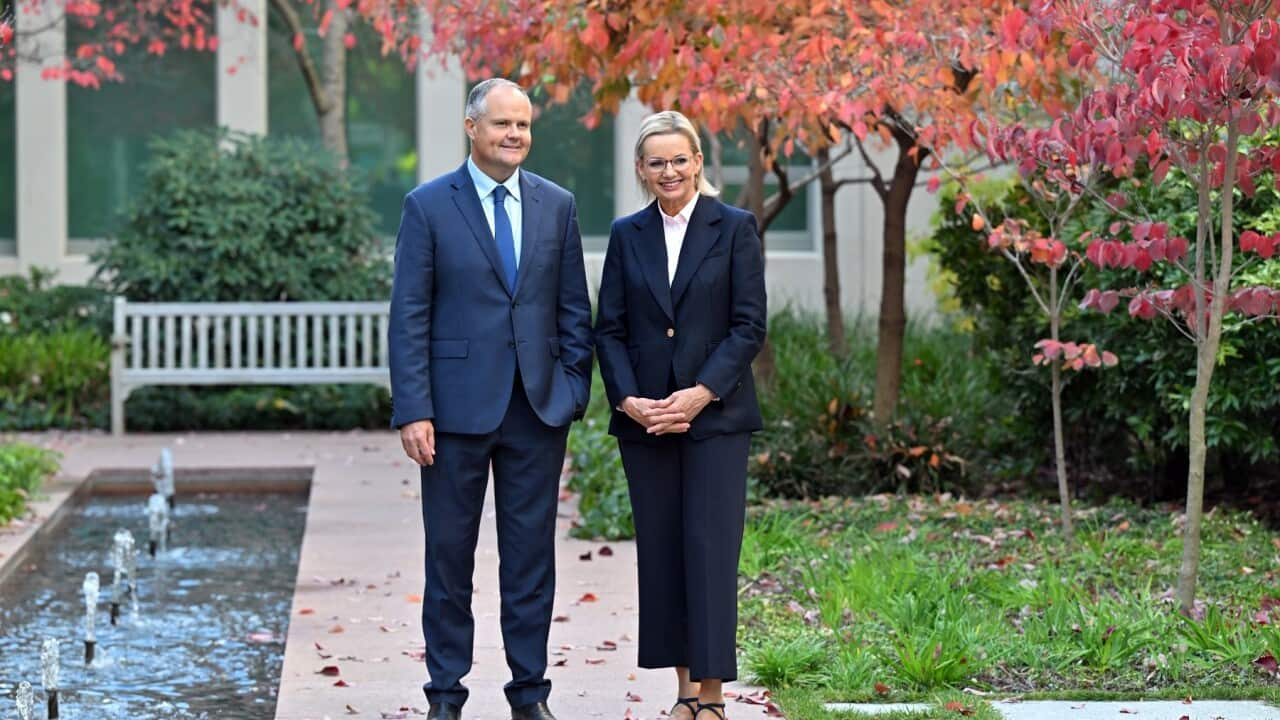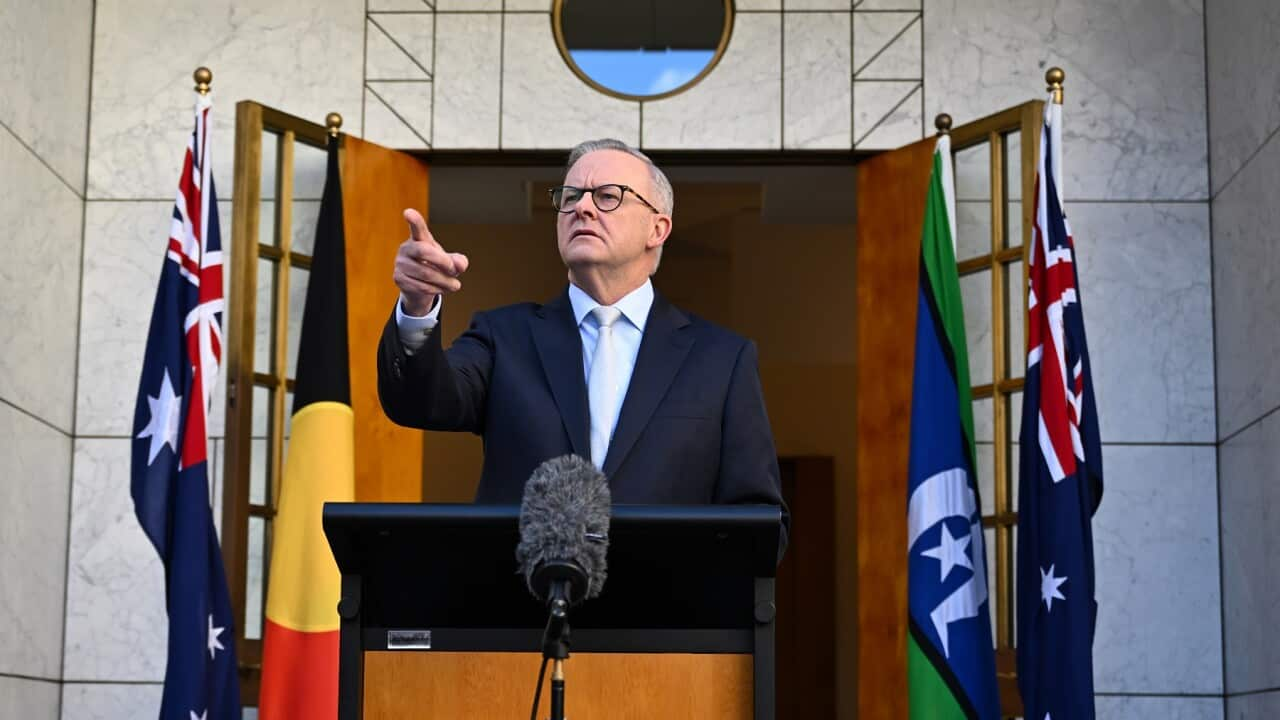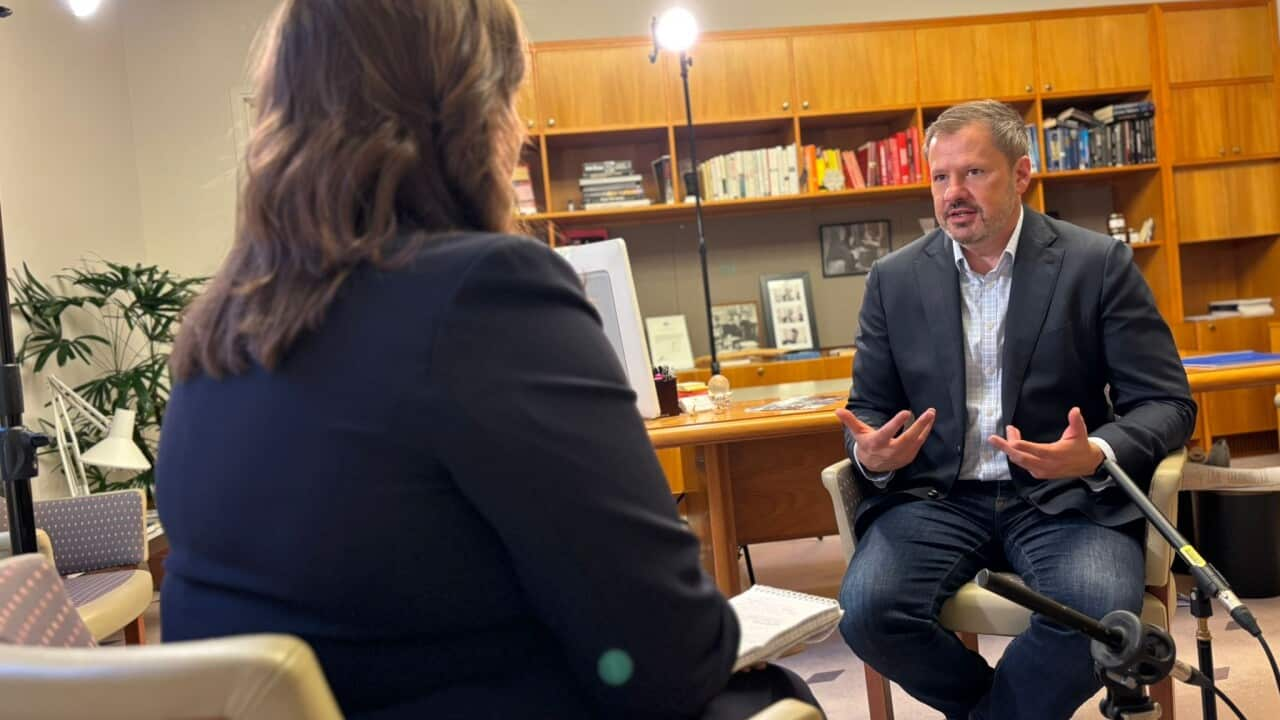TRANSCRIPT:
The first of two scheduled election debates has taken place in Western Sydney, home to a number of battleground seats that could decide the election outcome.
Hosted by Sky News, the hour-long debate has seen a group of 100 undecided voters ask questions of the major party leaders on both domestic and global concerns.
Cost of living concerns have loomed large in the debate, with about half the audience raising their hands when asked if they were struggling with the cost of living.
This voter said bulk billing is an important issue for her, with the out-of-pocket cost for visiting a doctor costing her as much as $80.
"What is your plan? Do you want to increase Medicare funding, so we don't have to pay an extra gap fee? Or is there any way we can stop doctors to charge us extra?
Labor has been keen to place health care issues at the forefront of its re-election bid.
It has already promised that nine out of 10 GP visits will be free from out-of-pocket expenses by 2030, under an $8.5 billion Medicare election pledge that the Coalition says it will match.
Mr Dutton vowed there would be no cuts to healthcare if the coalition is elected, and rebutted Labor's claims about his record.
Albanese: "What we inherited, which was bulk-billing in freefall, while the Coalition was in government."
Dutton: "Again, that is factually incorrect. So I was health minister in 2013/14. The bulk billing rate in our country was 84 per cent. It went to 88 per cent by the time we finished government. And the prime minister rightly will point out that includes services over COVID. But it was heading up under us. The fact is that it is now to 77."
Albanese: "Didn't you try to introduce a charge to get to bulk-billing?"
Dutton: "I'm happy to get to that. So it is now at 77 per cent. The prime minister wants you to believe it is much higher and it is in free fall - it's not."
Mr Dutton was repeatedly asked about his rhetoric on migration, with audience members asking what he could do to avoid "demonising" them.
Mr Dutton has said Australia should celebrate its migration story - which he has argued is being challenged by what he calls record migration rates.
The Opposition Leader told the audience migration is putting pressure on infrastructure like housing, despite multiple studies finding that there is no link between international student numbers and the cost of rent.
"So we have to have a managed migration program and our argument is you can reduce it from the record level it's at at the moment, down by 25 per cent over two years, which will create 100,000 homes that will help young Australians get into housing."
Mr Albanese has said Labor is also concerned by the cost and availability of housing, and has already implemented a two-year ban on foreign ownership of homes, which he says will free up the housing market.
"We think that's appropriate at the moment to ensure homes are available for Australians. We want to increase the supply of homes - that's central to a range of policies we've put in place, whether it be private rentals, public and social housing (which is) where I grew up, or whether it's home ownership as well."
Perhaps the most spirited part of the debate came over an exchange over the different party approaches to energy policy.
Mr Albanese has appealed to voters with a $2.3 billion pledge to help homeowners buy batteries to store solar power and lower their energy costs.
But the debate was dominated by talk of gas.
During the debate, Mr Dutton kept drawing attention to the Coalition's plan to cut the fuel excise by 25 cents a litre and to increase domestic gas supply.
Dutton: "There is a lot of gas that is exported that we can turn back into the domestic market. We can reduce as the independent analysis has shown, the cost of gas by about 15 per cent - and that means we can bring down the cost of electricity. We can bring down the cost across the economy, otherwise. And that is, I think, transformational for our economy, but of course opposed by the prime minister."
Moderator/host Kieran Gilbert: "Well, let's hear from him."
Albanese: "Well, the only gas policy that the Coalition have is the gaslighting ((psychological manipulation)) of the Australian public. He disagrees with all of the experts, which out there. Whether it is the Australian Energy Market Operator - everyone who looks at it. If the nuclear plan stacked up, the private sector would invest in it."]]
Limiting the impact to Australia from the US tariffs has also emerged as an issue of concern for voters during the debate.
Mr Albanese says the effects have been minimised because of his government's intensive diplomatic efforts.
"Australia got the best deal of any country on the planet. 10 per cent is 10 per cent more than we would like. But no one got a better deal than us. In part, because of the representations that we had made. But we were prepared as well. We know no country is better positioned to take of advantage of the trade opportunities. And it is important to remember this: 80 per cent of global trade doesn't involve the United States. So in our region in particular, there will be opportunities for Australia that we want to seize."
Mr Dutton has said he feels he would have done a better job in helping Australia to escape the impact.
"I sat around the cabinet table when we negotiated with Trump mark one presidency. And we negotiated an outcome for Australia, which is much better than what we had today. It meant that Australia was excluded the first round of tariffs imposed by President Trump. The Prime Minister of the day should have the ability and strength of character to be able to stand up against bullies, against those who would seek to do us harm - to keep our country safe. And to make sure we can make the right economic decisions for our country as well. And that is exactly what I would seek to do as prime minister."
Mr Albanese was declared the winner of this first election debate with 44 votes compared to 35 for Mr Dutton.
21 voters said they remained undecided.
But the winner of the election debate does not necessarily go on to win the election.
In Australia's very first televised election debate on 26 November 1984, opposition leader Andrew Peacock was deemed to have won against prime minister Bob Hawke - but he did not go on to win the election.
A second leaders' debate will be hosted by the ABC on 16 April [[8pm AEST]], ahead of the federal election day on 3 May.
And you can follow SBS's election coverage by following the feeds for 'SBS Our House' and 'Party Time' wherever you get your podcasts.
